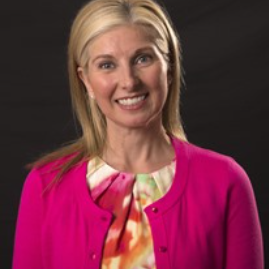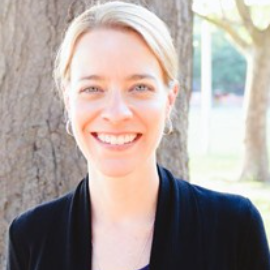Promoting Critical Thinking Through Active Learning
Thursday, September 29 at 1:00pm CT
Speakers

Matt Evans
Professor Physics and Astronomy, University of Wisconsin-Eau Claire
Matt Evans has been teaching physics for over 20 years at the University of Wisconsin – Eau Claire, often exploring new techniques and technologies that can enhance the classroom experience for students, including online homework systems and pre and post-lecture support videos. For the past 17 years, he has been using iClicker systems in his classrooms, often beta-testing new instructor-driven features to help make them serve instructors and students in their classrooms and beyond.

AJ Metz
Associate Professor of Educational Psychology, University of Utah
A.J. is an associate professor and associate chair of the Department of Educational Psychology at the University of Utah. She earned a master’s degree in rehabilitation counseling and a Ph.D. in urban education (with a specialization in counseling psychology) from the University of Wisconsin–Milwaukee. Her research examining factors related to academic success and career development in underrepresented and underserved student populations has led to numerous journal articles, book chapters, conference presentations, workshops, grant proposals, and faculty in-service training sessions. A.J. has extensive teaching, counseling, consulting, and career advising experience in high schools, community colleges, and four-year public and private institutions of higher education. Her passion for teaching motivates her to experiment with innovative teaching methods and develop new and engaging activities and instructional materials. In 2015 she received the University of Utah’s Early Career Teaching Award, and in 2017 she received the College of Education Teaching Award. She is the past president of the Utah Psychological Association and serves on multiple state-level task forces and advisory councils promoting college access, career readiness, and school-based mental health services.

John Pollard
Associate Dean for Academic Affairs and Curricular Innovation & Associate Professor of Practice in the Department of Chemistry and Biochemistry, University of Arizona
Dr. John Pollard is the Associate Dean for Academics for the W.A. Franke Honors College and a Professor of Practice in the Department of Chemistry and Biochemistry at the University of Arizona. John is an award-winning educator who is the co-author of the nationally recognized Chemical Thinking curriculum and associated eBook. In addition, John has authored several popular YouTube and TedEd videos centered around fundamental ideas in general chemistry. He is an expert and advocate for evidence-based instructional practices and spearheaded the Collaborative Learning Space movement on campus where traditional spaces are transformed into classrooms that facilitate active learning. As the Associate Dean for the University of W.A. Franke Honors College, John leads the development of innovative learning experiences for students that include experiential learning opportunities at the Biosphere 2 facility, co-taught interdisciplinary courses, and the implementation of the Collaborative Online International Learning (COIL) methodology classes meant to promote cultural competencies with Honors students. Learning theories and practice are also at the center of John's research as he studies how metacognition, self-reported learning, and group interactions influence learning outcomes during active learning in Collaborative Learning Space environments. He also studies how learning environments can influence the development of interdisciplinary reasoning skills in students.

Jamie Shushan
Jamie Shushan Senior Student & Alumni Affairs Advisor and author of The Pocket Guide to College Success, Harvard University